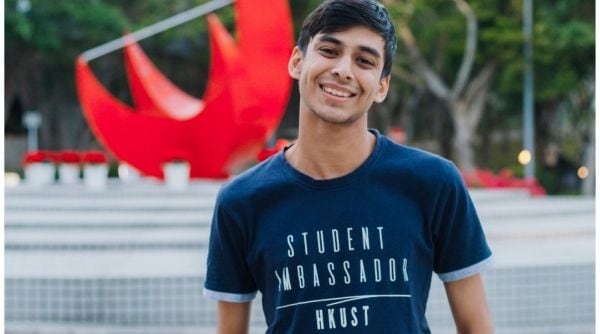Life in foreign university: A student’s guide on studying AE at HKUST
(This letter is part of a series by The Indian Express where we bring you experiences of students at different foreign varsities. How life is different in those countries — scholarships, loans, food, cultural experiences and what they are learning other than academic)
— Srivatsav Swaminathan
I am currently a final-year student of Aerospace Engineering at the Hong Kong University of Science and Technology (HKUST). I completed my high school under the Central Board of Secondary Education (CBSE) curriculum in Mumbai and now I am pursuing my Aerospace Engineering degree with a minor in Business Studies.
Like many others, even I was confused about my future career. While I knew that I wanted to study Aerospace Engineering, I was not sure about the university or city. Back then, I found out about HKUST from the QS World Rankings list when I was looking for potential universities to apply to.
In 2018, after attending an in-person info session conducted by the Undergraduate Recruitment and Admissions Office of the university in Mumbai, I learned more about the university. I applied in October and got my final offer in June.
To apply, you just need to visit their official website. If you have any questions, there is a dedicated platform through which you can contact the varsity’s student ambassadors and get peer-to-peer services.
Documents needed for admission:
— Your personal statement
—Class 10 and 12 marksheets (if you are yet to complete your school education, ask your school authorities to give predicted scores)
— Letter of recommendation
— Proof of extra-curricular activities (certificates, endorsements, etc.)
— English Language test scores
While I was certain about what I wanted to pursue, many people may not be entirely sure about what major they want to pick. Therefore, it is always a good idea to study in universities which adopt flexible and broad-based curriculum.
During my first year at then university, we were motivated to try different introductory courses that help one understand what they are interested in. This helped us understand if our chosen programmes led us to the careers that we could potentially see ourselves doing in the future. This process helps you make an informed decision based on your interests without succumbing to any kind of pressure. You can even change your major or opt-out of a discipline at any given point during your degree.


Expand your options and portfolio
A piece of advice that I would like to share is while building your profile, before you apply to a university, pursue something you find even remotely interesting. For example, you might want to pursue engineering but there is no harm in trying out a business case competition or even learning about fundamental psychology on the side. Your portfolio does not have to be solely focused on things you aspire to do at university but on what your interests are. While I always wanted to enter the aviation industry, it did not deter me from taking a case competition where I spoke about the impacts of weather and climate change on agriculture. Although it was different from my major, I enjoyed doing it.
Cultural similarities and differences
India and Hong Kong — both Asian countries — are similar in many ways. Life at both the places is fast-paced and it never gets boring. There is always something to do or places to explore. The city itself is amazing and there are spectacular areas to visit and the public transport system is reliable.
Being a vegetarian, one of the biggest concerns of my parents was the availability of vegetarian food — a concern common with many Indian parents. However, rest assured that there are plenty of vegetarian options both on and off campus.
One of the major differences I noticed between Hong Kong and India is that, in the former, you are encouraged to focus on a lot more than just academics. It is not limited to clubs or societies, here I can create my own start-up while pursuing my degree in Aerospace engineering and my university will even help me with funding and provide support with other things. In Hong Kong, I can pursue anything that interests me without any constraints and it does not have to be limited to just Aerospace-related ventures.
Though school education in India is very comprehensive and covers a vast range of topics, however, I still feel that there is a need to lay greater emphasis on activities outside the classroom for a better holistic development apart from academics. A lot of schools do hold events and competitions and encourage students to pursue their interests, and I do feel like other schools should follow a similar pattern. During my first year, there was a slight learning curve that I had to adapt to and if greater personal development was something that was focused on the high school level in India, I could have been ahead of the curve quicker.
Many of you who are reading this are probably in your final year too and you need to understand that if your grades go down, it is not the end of the world. It is important to learn from your mistakes and work harder the next time and never give up till you achieve your goal.



